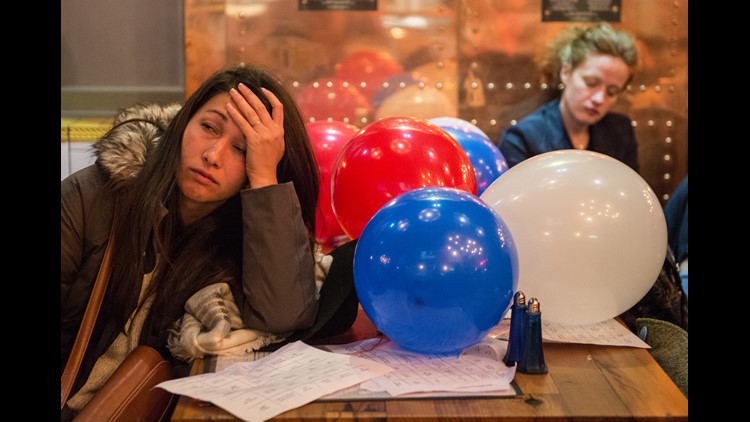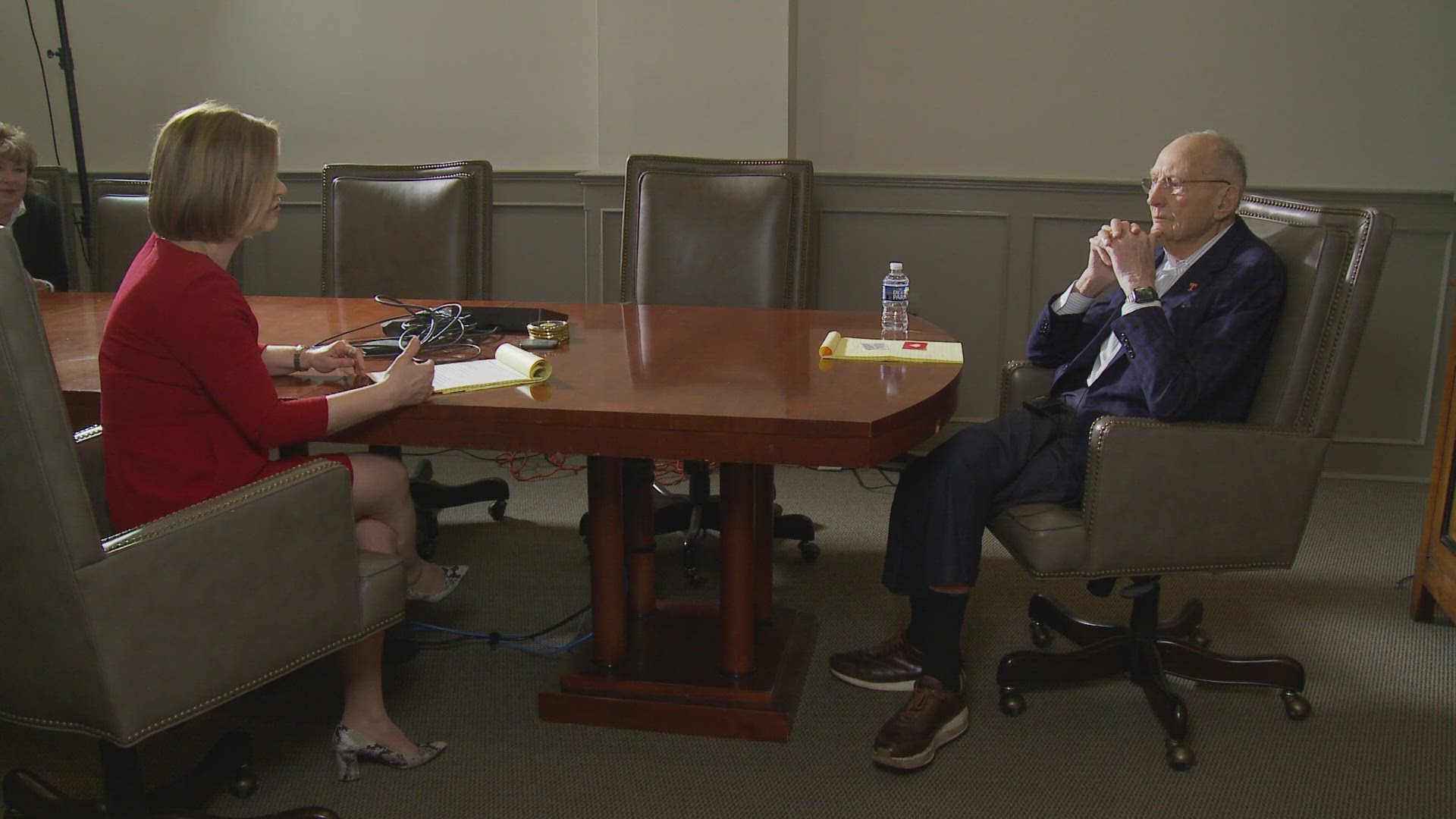Pollsters flubbed the 2016 presidential election in seismic fashion.
Donald Trump's strong performance dealt a crushing blow to the credibility of the nation's leading pollsters, calling into question their mathematical models, assumptions and survey methods.
Several months of polls pegged Hillary Clinton as the leader in the polarizing race and as the leader in many key battleground states.
But Trump's surge crushed the conventional wisdom among pollsters. Late Tuesday, it appeared he was far outpacing projections across the board.
Even if Clinton pulls off a victory, the results suggest pollsters may have wildly underestimated the number of hidden Trump voters — people who stampeded to the ballot box on Election Day but never showed up on the radar of surveyors.
There was one notable exception among pollsters.
I've believed in data for 30 years in politics and data died tonight. I could not have been more wrong about this election.
— mike murphy (@murphymike) November 9, 2016
The Los Angeles Times/University of Southern California tracking poll consistently pegged Trump as the leader throughout the final months of the campaign — and to much derision from political pundits.
Arie Kapteyn, director of the University of Southern California’s (USC) Dornsife Center for Economic and Social Research, which jointly runs the poll, said some voters were apparently sheepish about admitting to a human pollster that they were backing Trump. But the L.A. Times/USC poll was based on an internet survey of a recruited group of voters.
"There's some suggestion that Clinton supporters are more likely to say they're a Clinton supporter than Trump supporters are to say they're a Trump supporter," Kapteyn said late Tuesday in an interview.
Kapteyn suggested that many pollsters may have incorrectly ruled out the prospect that people who didn't vote in 2012 would nonetheless cast ballots in 2016.
"But the people who didn't vote last time are more likely to be Trump supporters," he said, noting that the L.A. Times/USC poll gave more weight to whether voters said they planned to vote. "If you eliminate people who didn't vote last time, you may have eliminated too many Trump supporters."
PHOTOS: Donald Trump's Election Night event
But Michael Traugott, professor at the University of Michigan's Center for Political Studies, said he doesn't believe the differences between internet-based polls and phone-based polls explains the whopping disparity.
He estimated shortly before midnight that overall turnout would equal about 130 million voters, down from an expected 135 million.
"But if the lower turnout was disproportionately among Democrats, that obviously would have hurt (Clinton)," Traugott said.
He also posited that FBI director James Comey's late decision to review additional Clinton emails might have swayed some voters without notice by the pollsters.
"There could be a slight element of not polling late enough," he said.
In the final average of 4-way polls tracked by RealClearPolitics, Clinton led 45.5% to Trump's 42.2%, Libertarian Gary Johnson's 4.7% and Green Party candidate Jill Stein's 1.9%.
PHOTOS: Hillary Clinton on Election Day 2016
Polls that consistently gave Clinton a comfortable lead in recent weeks included Bloomberg Politics, CBS News, Fox News, Reuters/Ipsos, USA TODAY/Suffolk, Quinnipiac, Monmouth, Economist/YouGov and NBC News/SM, according to RealClearPolitics.
Of 67 national polls tracking a 4-way race since the start of October, only four gave Trump the lead, according to RealClearPolitics. Of 61 national polls tracking a 2-way race during that period, six gave Trump the lead.
And all six were the L.A. Times/USC poll.
In the much-followed business of projections based on an average of polls and added methodology, Nate Silver's fivethirtyeight.com and the New York Times' Upshot each gave Clinton a strong chance of winning.
Silver was the most conservative, pegging Clinton's probability of winning at 71.4% in one of his last pre-election assessments.
One assessment, the Princeton Election Consortium, raised eyebrows with its projection that Clinton had a 99% chance of prevailing.
PHOTOS: Election Day in America 2017



